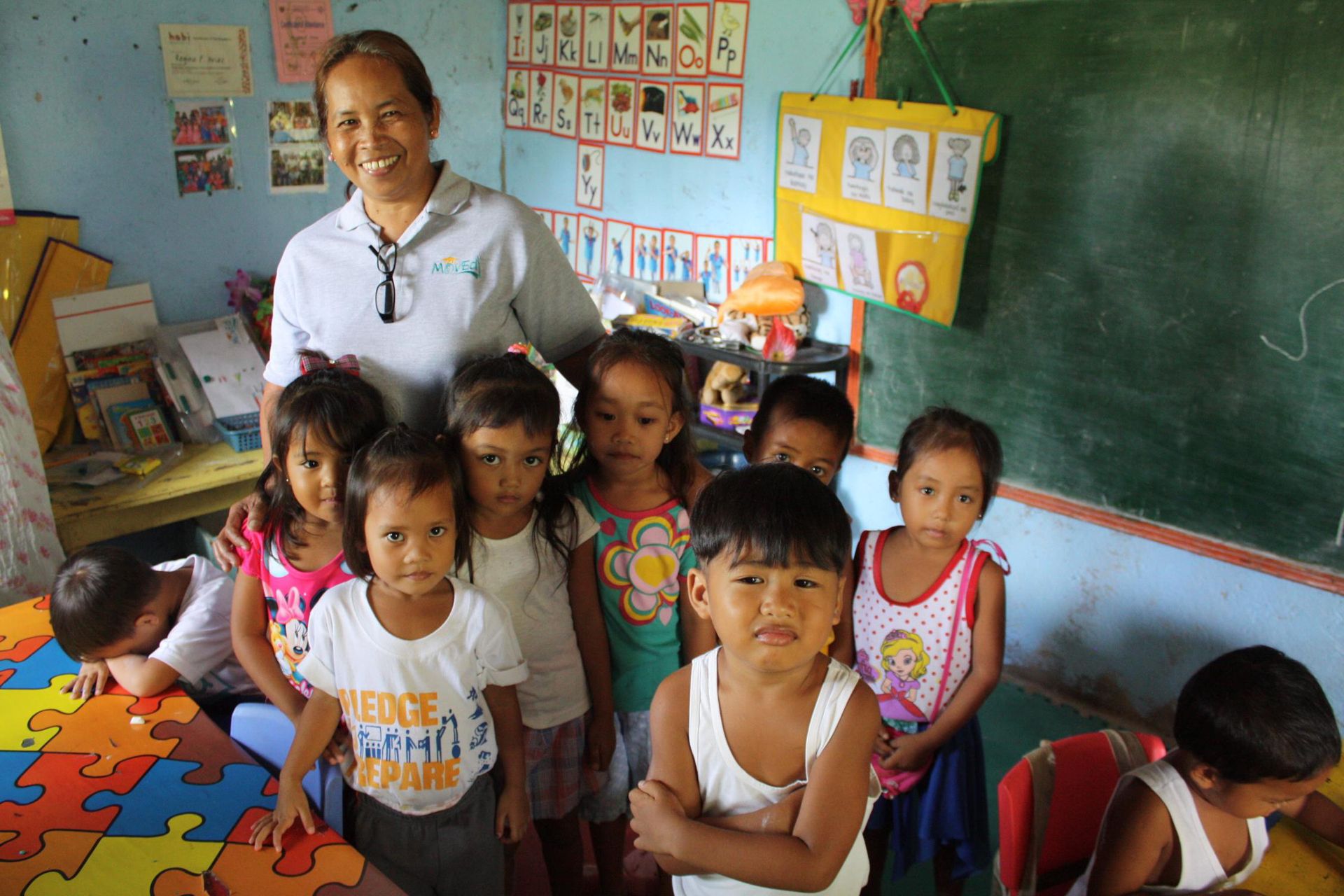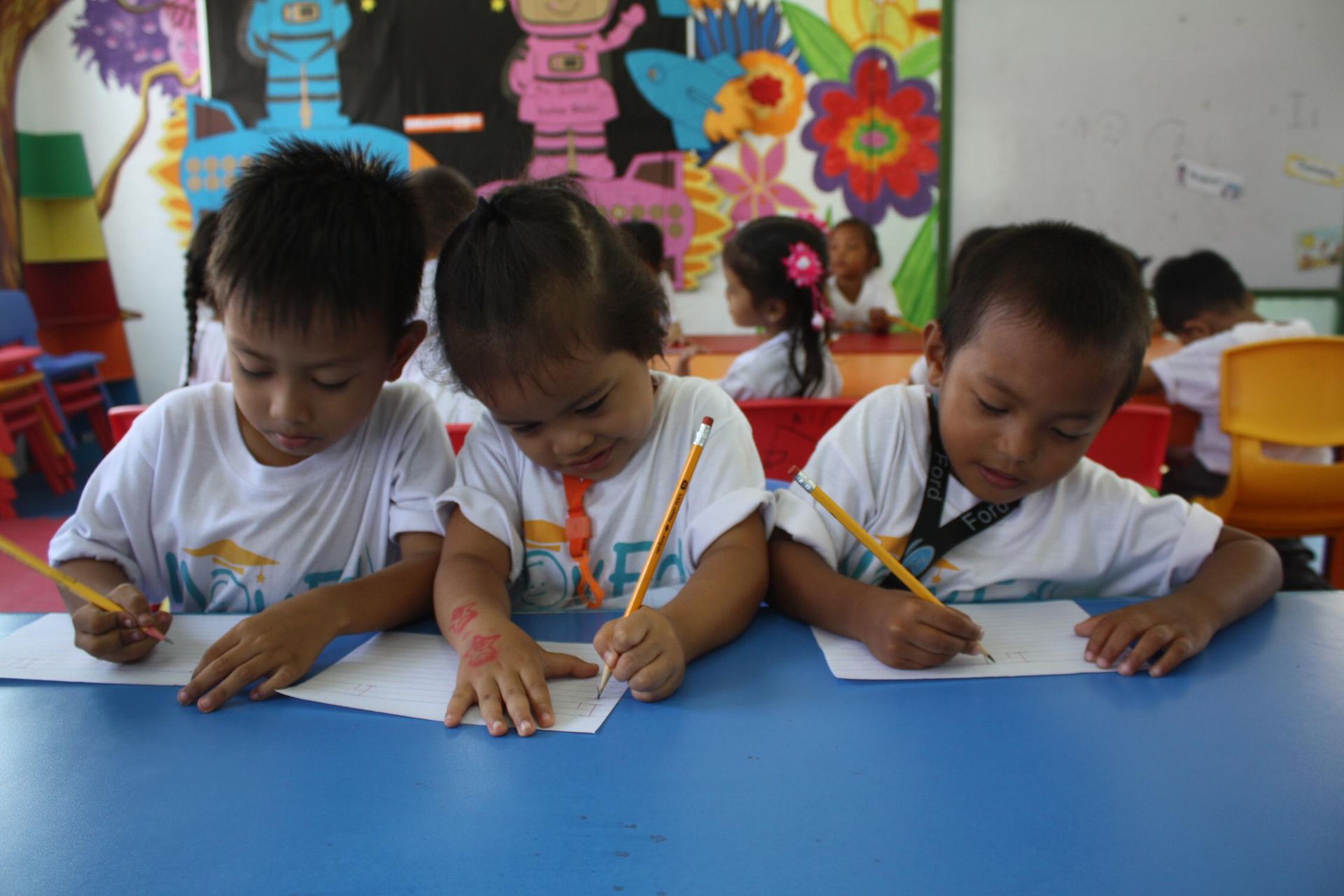In too many communities around the world, quality learning facilities are few and far between
Alex Eduque, founder and chairwoman of MovEd Foundation, has made it her life’s mission to empower people through education. MovEd aims to disrupt the mental framework of most Filipino low-income families to develop a lasting system and culture that places a premium on early childhood education.
It has been proven that humans learn the most during their earliest years. A child’s cognitive development is at its prime and most rapid, from birth to around five years old. Like sponges, they absorb all the stimulus around them, able to decipher, digest and interpret signs, signals and patterns stunningly. However, the importance of pre-school is often taken for granted and overlooked in low-income communities due to the pervasive poverty trap that creates detrimental cultural norms. “Unfortunately this young age range is when children in developing countries (not only in the Philippines) are oftentimes made to work alongside their parents to put food on the table instead of attending school” shares Alex Eduque


As an example, in the Philippines Kindergarten is the first level of mandatory public-school education and begins for children at five years old. With pre-school laying outside of the bounds of public school offerings, local government units work of a basic framework of milestones that should be met as provided by the Department Of Social Welfare and Development. This means that each district crafts its own make-shift booklets and lesson plans. Without government mandated standardisation in terms of teachers skill-levels, supplies, lessons or environments, children are more often than not, exposed to habitats or lessons that may not encourage the most effective or positive growth and development.







